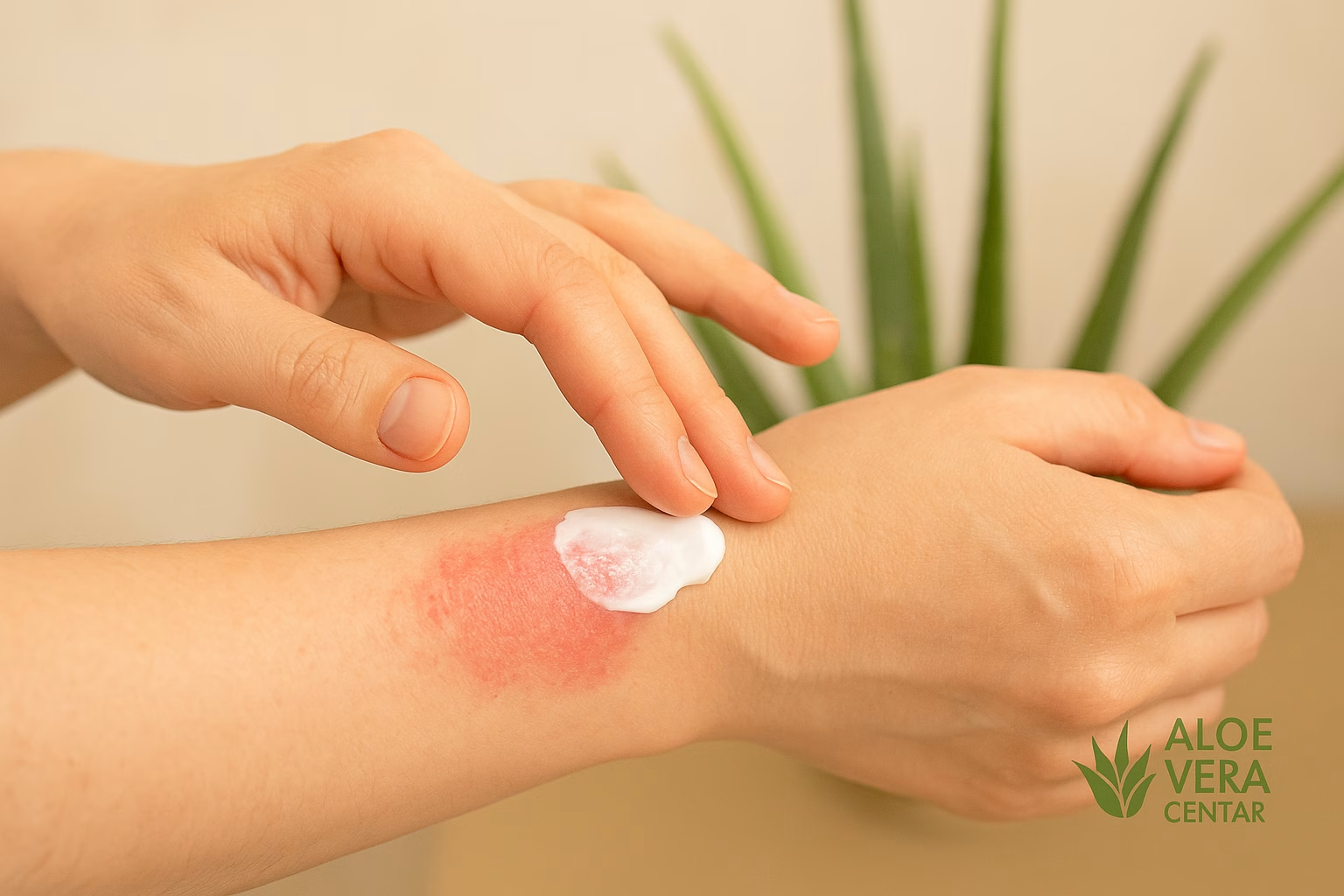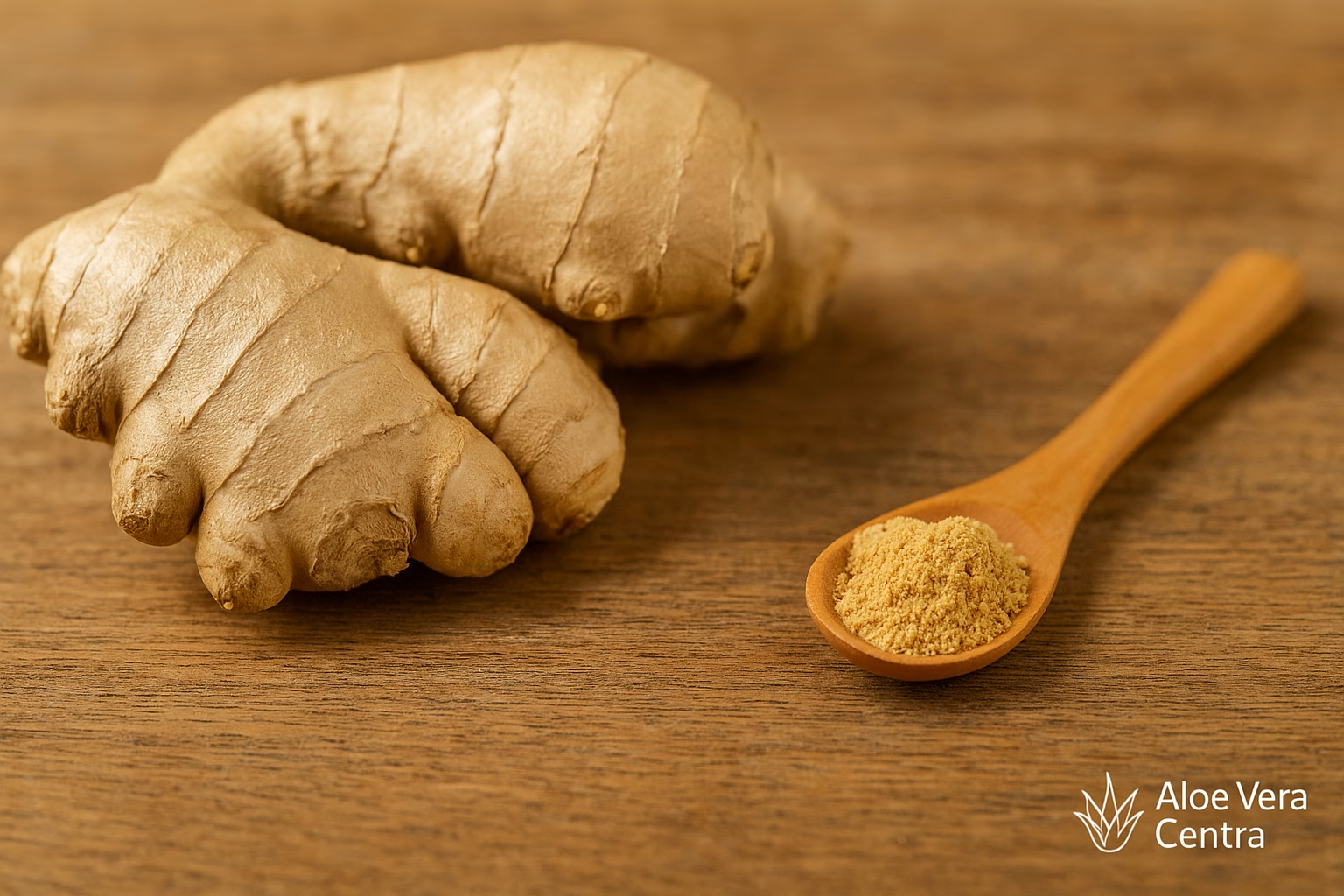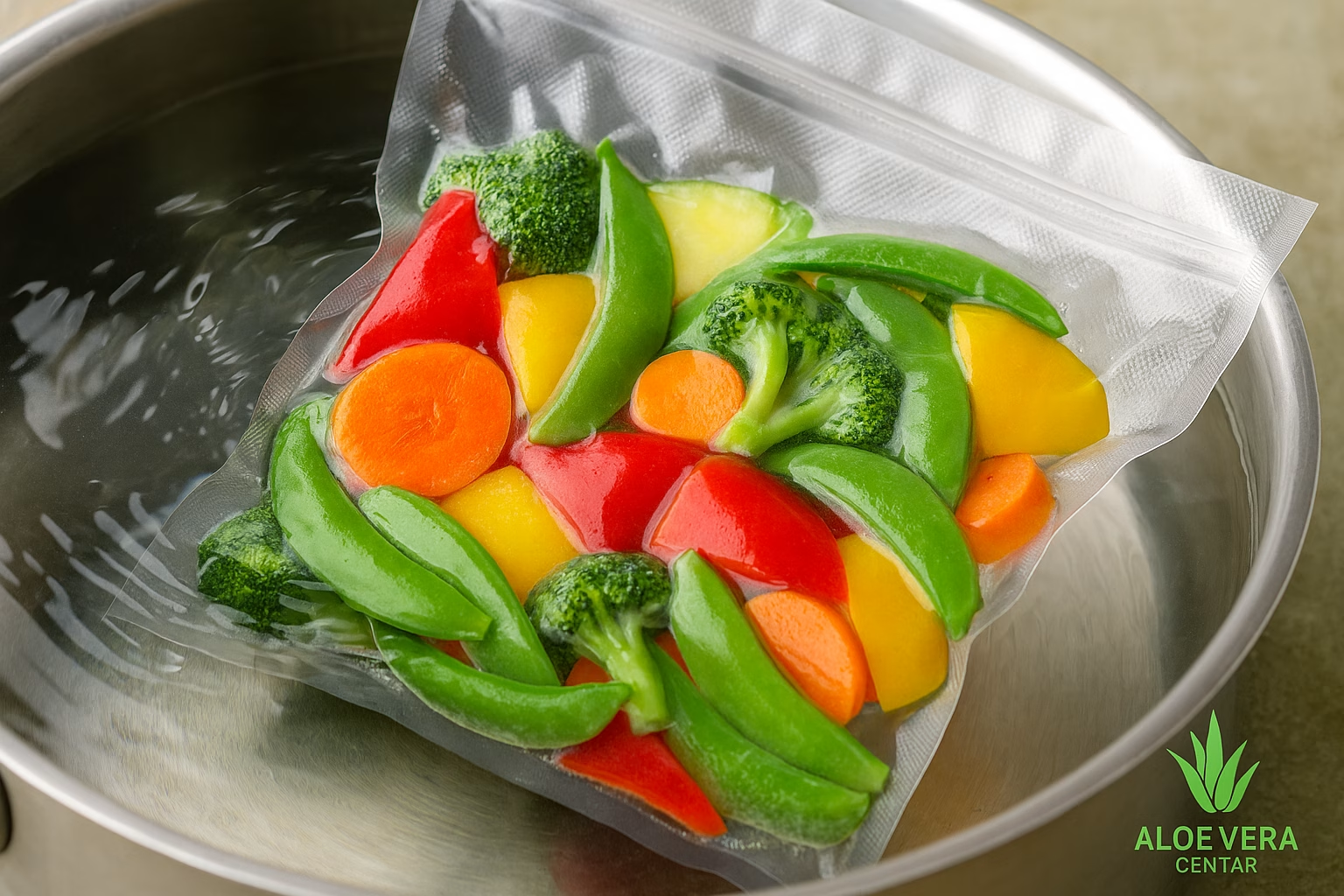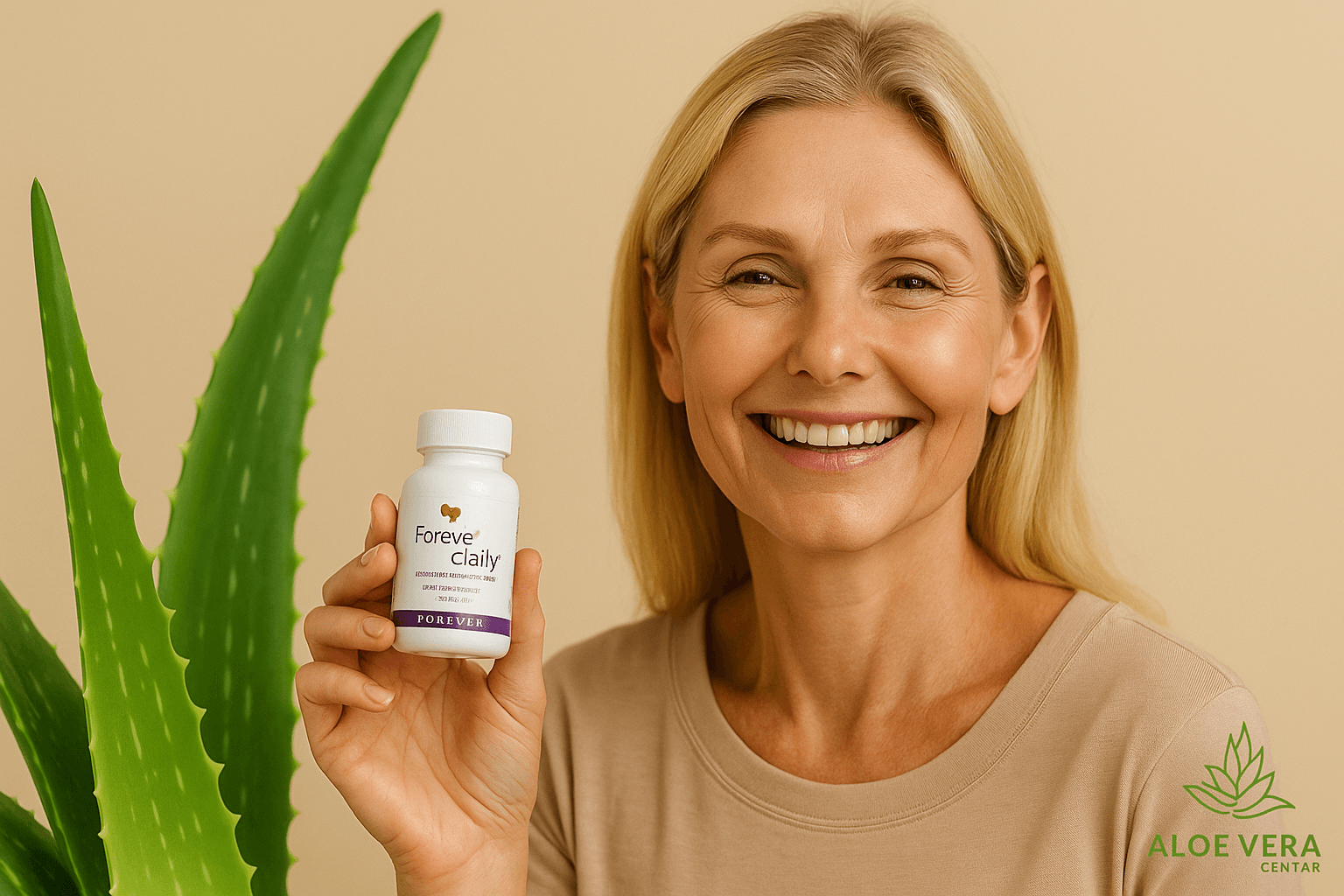
Sensitive skin and atopic dermatitis: How does aloe vera help?
Sensitive skin and atopic dermatitis: where aloe vera helps
Sensitive and reactive skin often requires special attention and care, and this is especially true for people suffering from atopic dermatitis (eczema). Characteristics such as dryness, flaking, redness and severe itching can significantly impair the quality of daily life, and they usually appear at an early age. There are numerous products on the market that promise relief, but more and more attention is being paid to natural solutions, among which aloe vera stands out in particular. In this article, we will take a closer look at atopic dermatitis, sensitive skin and the ways in which aloe vera can support the maintenance of a healthy skin barrier. We will also touch on scientific findings, possible side effects, as well as practical tips for your daily skin care routine. If you want to learn how this exceptional plant can relieve symptoms and improve the condition of your skin, keep reading!
Atopic dermatitis: causes and characteristics
Atopic dermatitis (AD), also known as eczema, is a chronic inflammatory skin condition that usually appears in early childhood, but it is not uncommon for it to first appear in adulthood. Symptoms include:
- Dryness and peeling skin: A disrupted skin barrier leads to moisture loss.
- Intense itching: Often accompanied by redness, resulting in scratching and possible secondary infection.
- Inflammation and redness: The skin’s immune response leads to inflamed, sensitive areas.
The main areas affected by atopic dermatitis can be the elbow creases, knees, neck and face, although changes can occur almost anywhere. An “itch-scratch” cycle is also common, which further worsens the condition and makes it difficult for the skin to heal.
What causes atopic dermatitis?
Although the exact causes are not yet fully understood, it is known that genetic factors, the environment and the immune system play a significant role. People with a family history of allergies, asthma or eczema are often more likely to develop AD. Excessive exposure to environmental allergens, pollution or chemical irritants can also trigger inflammation. Moreover, stress and emotional states can worsen symptoms, as they strongly affect the functioning of the immune system.
For a deeper insight into the causes and clinical manifestations of atopic dermatitis, you can read the expert article on DermNet (external link)
Sensitive skin: a wider range of problems
Sensitive skin does not necessarily mean you have atopic dermatitis, but there are certain similarities. In sensitive skin, the protective barrier is often damaged or less functional, resulting in:
- Reactivity to care products: Preservatives, fragrances, and harsh chemicals can cause burning or redness.
- The occurrence of allergic reactions: For example, contact dermatitis if the skin is exposed to irritating substances.
- Subjective feeling of tightness and burning: Often without visible changes on the surface, but with discomfort.
People with sensitive skin often need to carefully choose their skincare products, avoid potential triggers (such as strong perfumes and additives), and adjust their diet to maintain skin health. In many cases, these are the people who seek out natural solutions because they are often gentler and less irritating.
Aloe vera: a plant with a long history in skin care
Aloe vera (Latin: Aloe barbadensis ) has been used in traditional medicine for thousands of years to relieve skin problems – from burns and wounds to irritations and itching. Its value stems from the fact that the leaves of this plant contain a high proportion of gel, which is full of nutrients, vitamins, minerals and enzymes. Some of the most important ingredients are:
- Polysaccharides (acemannan): Promotes skin hydration and healing.
- Vitamins (A, C, E, B12): They have antioxidant effects and can help regenerate the skin.
- Minerals (calcium, magnesium, zinc): Important for enzymatic processes and structural support of the skin.
- Amino acids and enzymes: Contribute to calming inflammation and reducing irritation.
Given that these are ingredients that can help restore the skin’s natural barrier and maintain moisture, it’s not surprising that aloe vera is often recommended for people with sensitive skin or atopic dermatitis.
How can aloe vera help with atopic dermatitis and sensitive skin?
The basic benefits of aloe vera in the context of problematic skin can be grouped into several categories:
1. Hydration and restoration of the protective barrier
One of the fundamental problems with eczema and sensitive skin is loss of moisture . When the skin loses too much water, it becomes dry and prone to cracking and inflammatory processes. Aloe vera gel is known for its ability to attract and retain water, improving hydration in the surface layers of the skin. This strengthens the barrier and reduces the probability of penetration of allergens and irritants.
2. Anti-inflammatory and soothing effect
Atopic dermatitis is an inflammatory skin condition. Aloe vera contains compounds such as acemannan and aloin that may have anti-inflammatory effects and help reduce redness and itching. In some cases, it may shorten the duration of acute eczema flare-ups and relieve the uncomfortable burning sensation.
3. Possibility of accelerated healing
When sensitive skin or areas affected by eczema are scratched to the point of sores, there is an increased risk of infection and delayed healing. Aloe vera ingredients help maintain a moist environment conducive to healing, and its antimicrobial properties can reduce the risk of bacterial infections.
4. Minimal irritation
Unlike certain synthetic ingredients and harsh creams, pure aloe vera gel tends to cause fewer side effects. Of course, people with extremely reactive skin should do a patch test before using it, but aloe vera is generally considered safe for most skin types, including sensitive skin.
Scientific perspectives on aloe vera and skin problems
Despite the centuries-old tradition of using aloe vera, modern science is increasingly interested in its mechanisms of action. According to one study (PubMed) , aloe vera may help control inflammatory reactions and promote epidermal regeneration. Healthline also points out that while comprehensive clinical studies for atopic dermatitis have not yet been conducted, many preliminary data and user experiences indicate improvements in symptoms of itching, dryness, and redness.
It is important to understand, however, that aloe vera does not completely “cure” atopic dermatitis, as it is a complex condition with a genetic basis. Instead, it can reduce symptoms and improve quality of life when included in a comprehensive care and treatment plan.
Practical tips: how to use aloe vera in daily care?
If you’ve decided to try aloe vera as part of your routine for sensitive skin or atopic dermatitis, consider the following steps:
1. Choosing a quality product
There are many products on the market that contain aloe vera, but the percentage of real gel and additional ingredients (e.g. preservatives, fragrances) can vary greatly. When it comes to maximum effect and minimal risk of irritation, it is best to choose a pure gel with a high aloe content. Forever Aloe Vera Gel from the Forever Living range is often mentioned for its quality and strict control during production. If you decide to buy, you can also consider a special discount in the official Forever Living store.
2. Direct application to the skin
If you have a clear, stabilized gel, apply it to the affected areas once or twice a day or as needed. After application, wait for the gel to absorb, and then you can apply a moisturizer or emollient as recommended by your dermatologist. This combination often improves the overall effect.
3. Combining with emollients or protective creams
Atopic skin usually needs “heavier” emollients or protective creams (eg with ceramides) that create a protective layer on the surface. Aloe vera can serve as a base that provides deep hydration, while the emollient “locks in” moisture and prevents further drying.
4. Inside or outside?
In addition to topical application, many people also opt for aloe vera-based drinks (eg Forever Aloe Vera Gel in liquid form) to support digestion and general well-being. Better gut health is often associated with a balanced immune response, and thus calmer skin reactions.
What should you pay attention to when using aloe vera?
Although aloe vera is generally considered safe, especially for external use, there are a few things to keep in mind:
- Allergic reactions: Rare, but possible. It is recommended to test on a small area of skin (e.g. forearm) before regular use.
- Combinations with medications: If you use corticosteroid creams or other prescribed medications, always consult a dermatologist before introducing new products into your routine.
- Product quality: Be wary of products that contain low percentages of aloe or are enriched with harsh fragrances and preservatives. Such ingredients can cause additional irritation.
Additional measures for sensitive skin care and control of atopic dermatitis
Aloe vera can be a significant help, but the best results are usually achieved when a holistic approach is taken. Here are some additional measures:
1. Choosing mild cleaning products
Avoid soaps and shower gels with harsh sulfates that dry out your skin. Instead, choose syndet or oil-based bath products that don’t strip your skin of its natural oils.
2. Air humidity
Dry air worsens the symptoms of atopic dermatitis. In homes with central heating or air conditioning, it is useful to use humidifiers, especially during the colder months.
3. Cotton and natural fabrics
Clothing made of synthetics or wool can further irritate sensitive skin. It is advisable to choose cotton, linen or silk fabrics that allow the skin to breathe.
4. Cold or lukewarm water instead of hot
Hot water strips the skin of its natural oils and can make itching worse. Always shower or bathe in lukewarm water, and then gently pat your skin dry, rather than rubbing it with a towel.
5. Stress management
Stress is a common trigger for eczema flare-ups. Techniques like meditation, yoga, or regular walks in nature can stabilize mood and potentially reduce the body’s inflammatory responses.
Frequently asked questions (FAQ) about aloe vera and atopic dermatitis
1. Can children with atopic dermatitis use aloe vera?
Yes, it is often recommended, but you should always be careful. Children’s skin is more sensitive. It is best to do a patch test (a small area of skin) and monitor the reaction for 24 hours. If there is no redness, burning or rash, you can gradually introduce the product into your regular care.
2. Does aloe vera help with itching?
Numerous user testimonials indicate that aloe vera helps reduce itching thanks to its anti-inflammatory and soothing effects. However, individual results may vary; some will experience greater relief, while others may only notice a slight difference.
3. Can aloe vera be used together with corticosteroids?
If your doctor prescribes a corticosteroid cream, it is usually not a problem to use aloe vera along with it, but it is best to apply it at the opposite time of day to the prescribed cream (for example, aloe in the morning, corticosteroid in the evening). Always follow your dermatologist’s advice.
4. Which product from the Forever Living range is suitable for atopic skin?
A popular choice is Aloe Propolis Creme , which combines pure aloe gel and bee propolis, helping to hydrate and protect the skin. There is also Forever Aloe Vera Gel (in liquid form for internal use) or Aloe Moisturizing Lotion for everyday care. If you are interested in the offer, you can take advantage of the 15% discount on the official webshop.
Conclusion: Aloe vera as a valuable aid, but not a magic solution
Aloe vera undoubtedly has the potential to make life easier for people with sensitive skin and atopic dermatitis. With its rich content of polysaccharides, vitamins and minerals, it can contribute to better hydration, reduce inflammation and accelerate healing. However, it is important to emphasize that this is an additional measure in a comprehensive approach to the care of problematic skin. You will achieve the best results if you combine carefully selected aloe-based products with the guidance of a dermatologist, lifestyle changes and, if necessary, prescribed medications.
If you are interested in quality aloe-based products, don’t miss out on the special offer at the official Forever Living store. This can secure a discount on products like Aloe Propolis Creme or Forever Aloe Vera Gel , which have gained the trust of many users. It is important to remember that everyone has unique skin needs, so a certain amount of experimentation and an individualized approach is required.
Ultimately, the key is balance – with proper care and lifestyle habits, aloe vera can provide valuable support for your skin to stay hydrated, calm, and ready for new challenges.
This content is for informational purposes only and is not a substitute for professional medical diagnosis or treatment. For specific concerns, please consult a dermatologist or other qualified healthcare professional.








